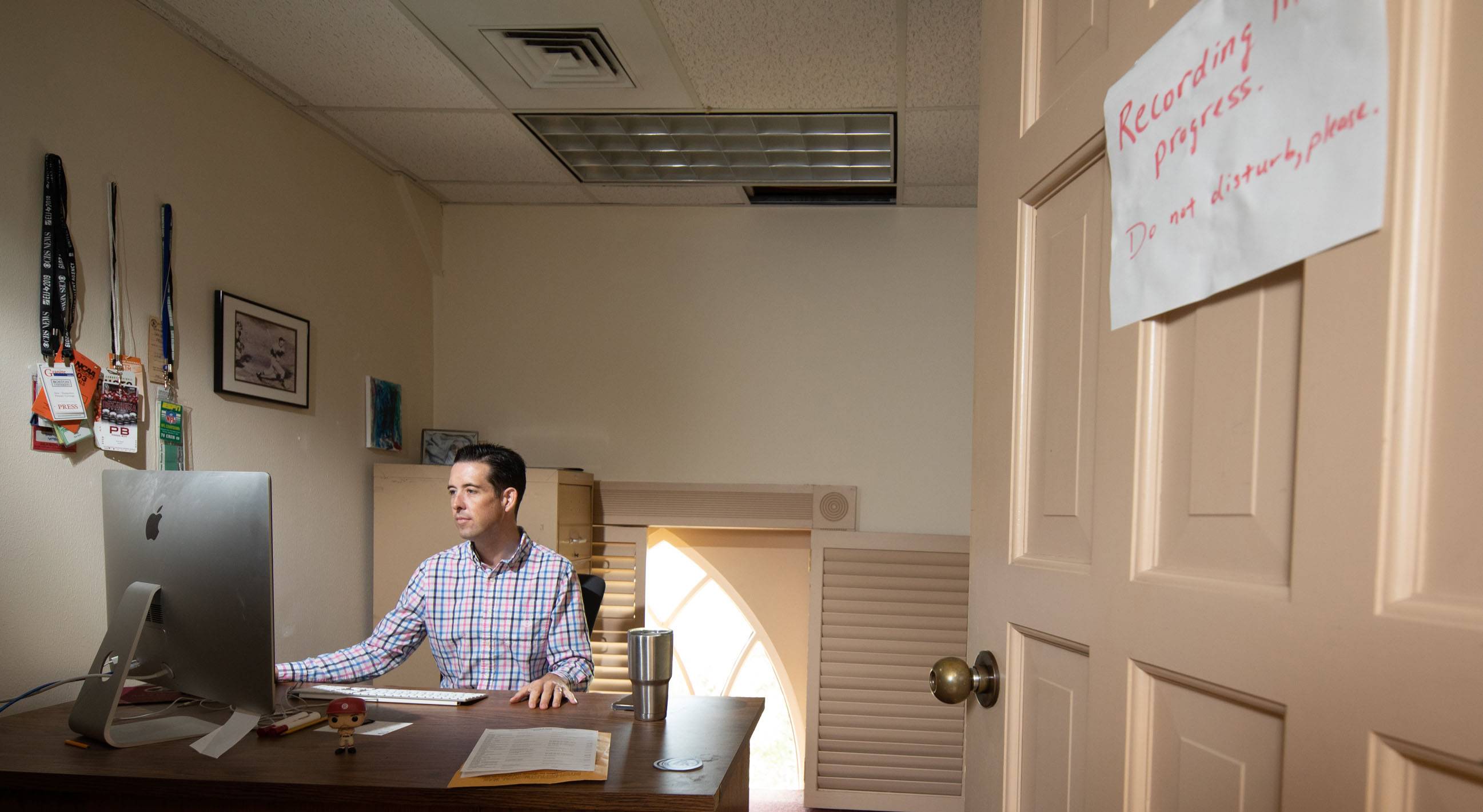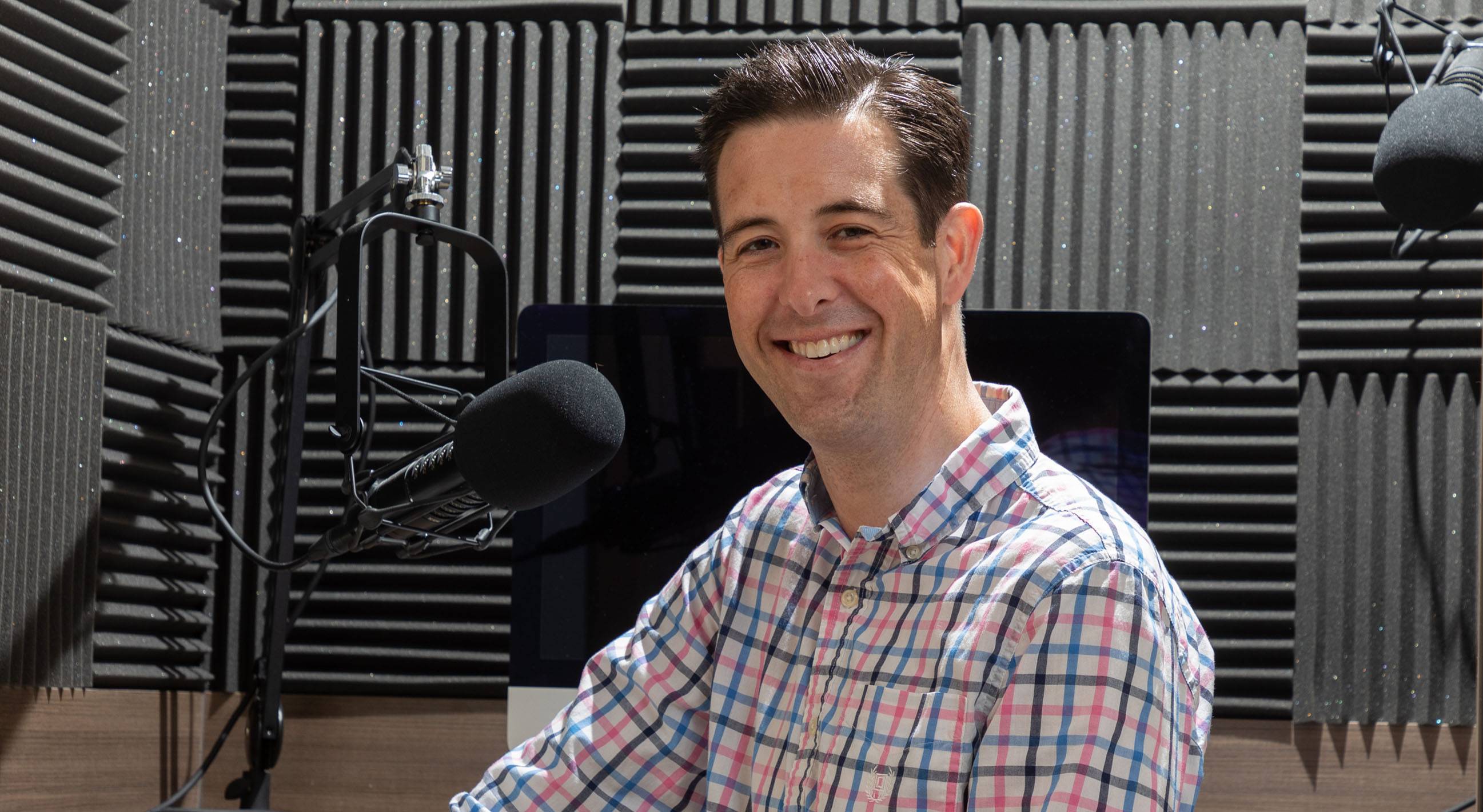
It's no secret that Texas State University fosters big ideas. So many, in fact, that they inspired a monthly podcast dedicated to exploring all the innovative research and initiatives that take place across the campuses and beyond.
Now entering its third year, Big Ideas TXST has served up dynamic, insightful interviews with poets, performers, virologists, criminologists, agriculture experts and cognitive and developmental psychologists — a wide array of guests that barely begins to scratch the surface of what's happening at Texas State.
"What also stands out to me is the depth of the faculty and experts that we have here at Texas State," said Dan Seed, podcast host and a lecturer in the School of Journalism and Mass Communication Seed said. "You name it, we have it, and have it at a level that, I believe, rivals any university in the country, so it's been fun discovering all these people and letting them tell the world what they do and why it matters.

“I mean, just as an example, we recently recorded an episode with Dr. Kim Rossmo, who does geographic profiling in connection with solving unsolved crimes," Seed says. "That was so fascinating, and he literally wrote the algorithm that's used by police departments around the world to understand where an unknown serial killer might live. He's helped with counter-terrorism efforts using this algorithm, and even helped determine the outbreak sources for centuries old epidemics using it and his own investigative techniques. How cool is that and how cool is it that he's here?"
Rossmo is just one example of all the interesting guest who've appeared on Big Ideas TXST. They have run the gamut from the arts to STEM to agriculture to human health to crime and everything in-between.
"One of my favorite interviews was with Dr. Rodney Rhode, who specializes in virology. We interviewed him in early March 2020 about the still-new COVID-19 pandemic and he was so down to earth in how he explained the virus and how the situation had developed from an isolated outbreak in China to a global pandemic," Seed says. "We followed up with him in November 2020 after the virus had devastated the United States and he was brutally honest in how the government handled the response to COVID, but also in his assessment of science education in this country and how that lack of education helped lead to deep misunderstanding about the virus among the public and, to an extent, distrust of scientific experts.
"Prepping for some of these interviews can be difficult because their work can be complex, but letting them explain what they do, why they do it and how they do it is eye-opening and, hopefully, eye-opening for the audience," he says. "To me, the niche topics are the most fun because they are so off the beaten path and the folks involved in those areas are so excited to tell the world what they're doing and why it's important. It's stuff that makes you think and appreciate all the work that goes in to making the world a better place.
“What each of these guests are doing goes beyond the walls of the university, which is what academia should strive to do: impact the area where we live, our country, and the world at-large, no matter the area of study."
Big Ideas TXST can be found at https://news.txstate.edu/inside-txst/big-ideas-podcast.html. The podcast may also be listened to or subscribed to at Apple Podcasts, Spotify, Anchor and wherever podcasts are available.